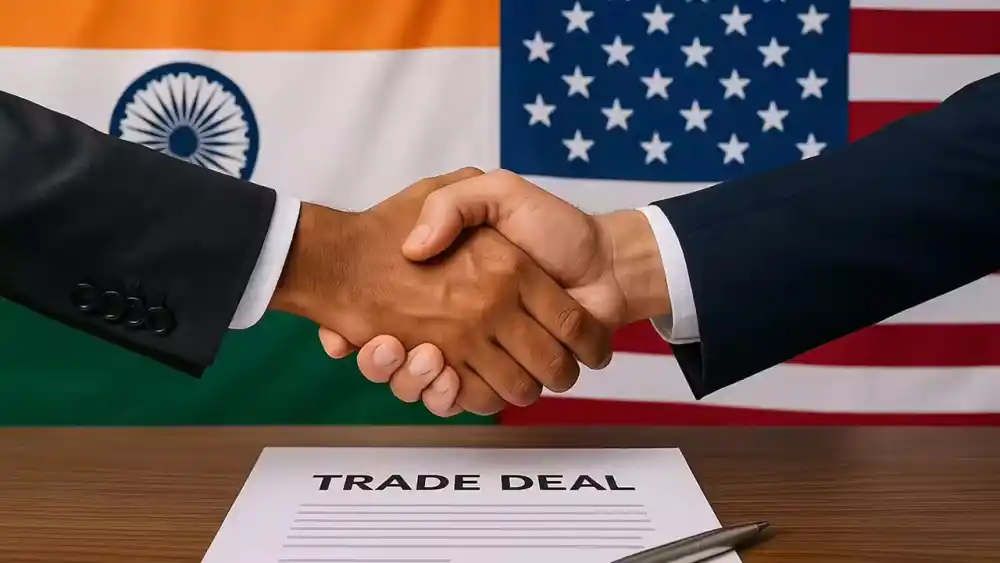
This website uses cookies to ensure you get the best experience on our website.

In recent months, signals have increasingly pointed toward a potential bilateral trade agreement between India and the United States. If finalized, this deal promises to reshape the India–U.S. commercial landscape, unlocking new opportunities for exporters, importers, and investors on both sides. As these discussions intensify, PapaExport India (www.papaexport.com) stands poised to play a pivotal role in connecting Indian exporters with U.S. markets and facilitating smooth cross-border trade.
In 2024, U.S. goods and services trade with India reached an estimated US $212.3 billion, with U.S. goods exports to India at about US $41.5 billion and imports from India at US $87.3 billion. United States Trade Representative
Despite this scale, structural barriers — high tariffs, non-tariff measures, and regulatory hurdles — still weigh heavily on trade flows.
Indian and U.S. leaders have publicly set ambitious targets, including attaining US–India trade of US $500 billion by 2030. Reuters+1
India has expressed commitment to liberalizing trade, signaling willingness to cut tariffs on a portion of U.S. imports. Reuters
Both nations have signed terms of reference for early-stage negotiations. Reuters+1
High-level engagements — such as U.S. Ambassador Sergio Gor’s meetings with Indian officials — underscore the political push behind the talks. India Today+1
Nevertheless, tensions remain. In 2025, the U.S. imposed a 50 % tariff on many Indian exports, a move that sparked diplomatic strain. The Washington Post+1
India has concurrently reserved rights under the WTO framework to respond to tariffs while asserting that such measures do not preclude constructive trade dialogue. The Times of India+1
Given this backdrop, many analysts view a bilateral trade deal as both feasible and strategically urgent.
Market Access & Tariff Reduction
Lower duties on Indian exports to the U.S. — especially in sectors like textiles, machinery, pharmaceuticals, and specialty goods — would boost India’s competitiveness.
Non-Tariff Barrier Easing
Harmonization of standards, streamlined customs, and recognition of Indian certifications would reduce delays and costs.
Increased Investment Flows
A stable trade framework often encourages greater foreign direct investment (FDI), especially in manufacturing, clean energy, and high-tech sectors.
Supply Chain Integration
India could anchor itself more firmly in U.S.-led supply chains for semiconductors, critical minerals, clean tech, and defense.
Agriculture & Services Gains
Though politically sensitive, limited openings in agriculture, dairy, or professional services could bring new export revenue — if structured carefully.
Secure access to Indian consumer markets and a diversified supply base
Export expansion in sectors like aerospace, defense, energy, and high-end equipment
More predictable trade environment for U.S. firms operating in or sourcing from India
Sensitive sectors such as agriculture, dairy, intellectual property, and data localization may pose stumbling blocks.
Balancing reciprocity: India will push for fair treatment, not one-sided relinquishments.
Managing geopolitical tensions: tariff retaliation, energy policy disputes, or strategic competition may complicate progress.
Ensuring that smaller exporters and MSMEs can benefit rather than be sidelined by large corporates.
As a B2B trade facilitation platform, PapaExport India (www.papaexport.com) is uniquely placed to help Indian exporters and U.S. buyers reap the benefits of a new trade regime. Here’s how:
PapaExport offers a gateway for Indian manufacturers, craftsmen, and small exporters to connect with U.S. importers and global buyers. As trade opens up, such digital platforms will be essential in matching demand and supply across geographies.
With trade rules evolving, exporters will need assistance with customs paperwork, certifications, documentation, and standards compliance. PapaExport can guide users through HS codes, regulatory norms, and logistics solutions. (You can explore Papa Export data with HS codes via Papa Export’s database resources.) Seair+1
Understanding tariffs, preferential rules, competitor landscapes, and regulatory updates will be critical. PapaExport can deliver curated intelligence, newsletters, and consulting to help exporters adapt strategy.
In a more liberalized framework, reputation and reliability will matter even more. PapaExport can enforce verification, quality checks, buyer-vetting, escrow services, or other trust mechanisms, helping to reduce default risk.
Many small and medium enterprises in India lack exposure to complex international trade norms. PapaExport can provide educational materials, onboarding support, mentorship, and capacity building to help them leverage the trade liberalization era.
If you want to explore how your business can benefit from PapaExport’s services under the upcoming trade regime, please reach out:
Phone: +91 88 666 88 946
Email: info@papaexport.com
Visit: www.papaexport.com
